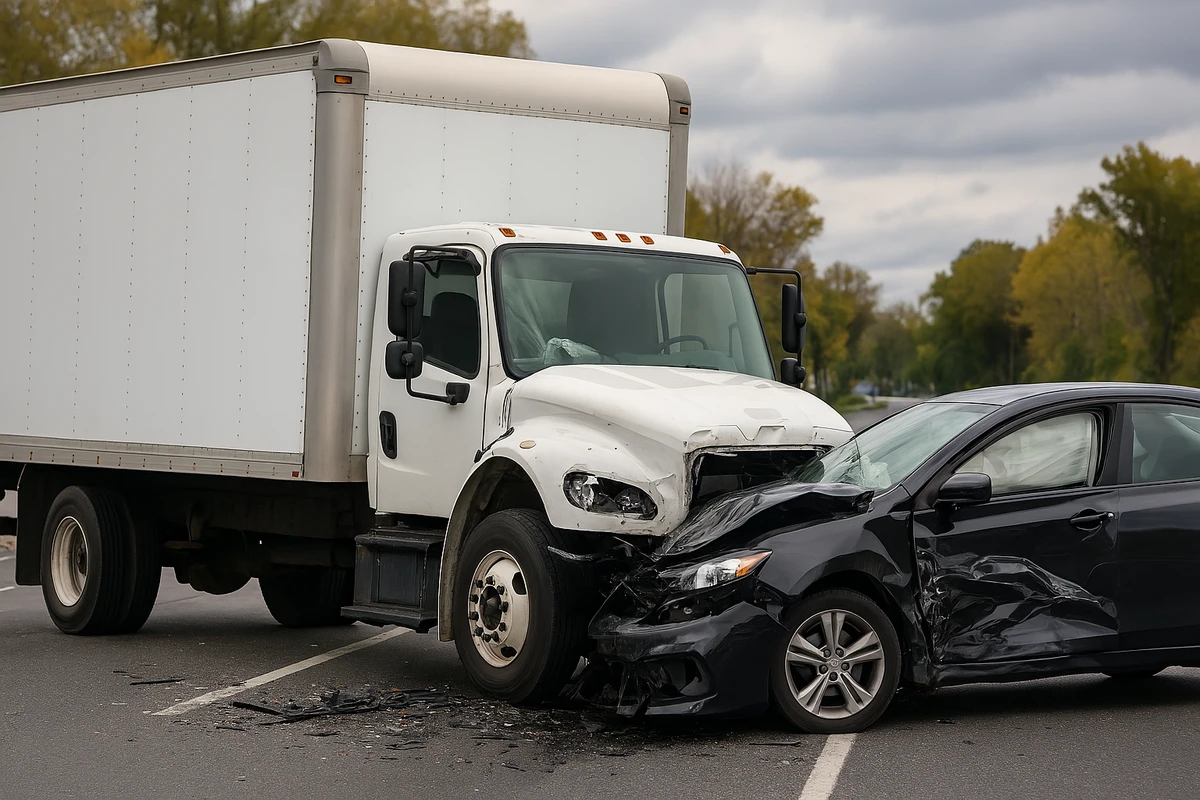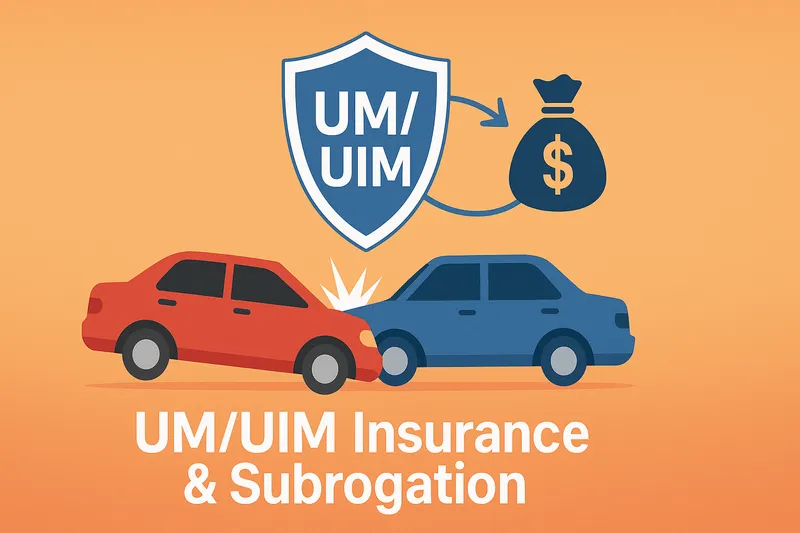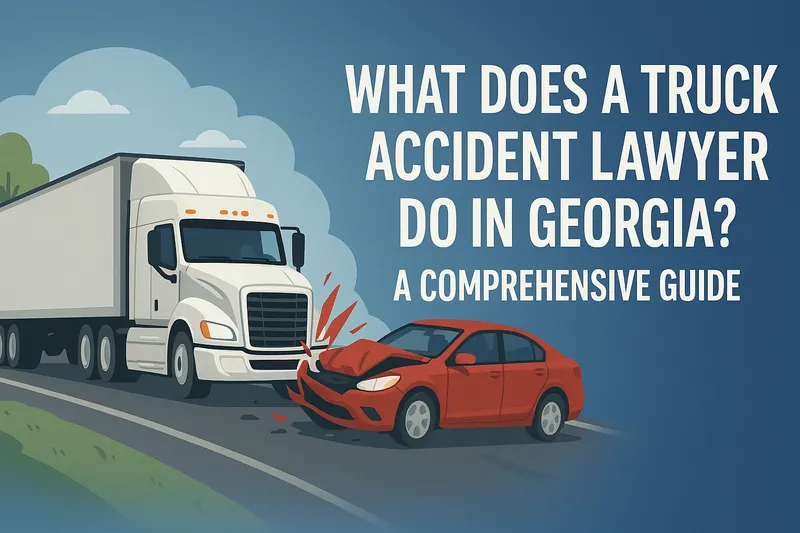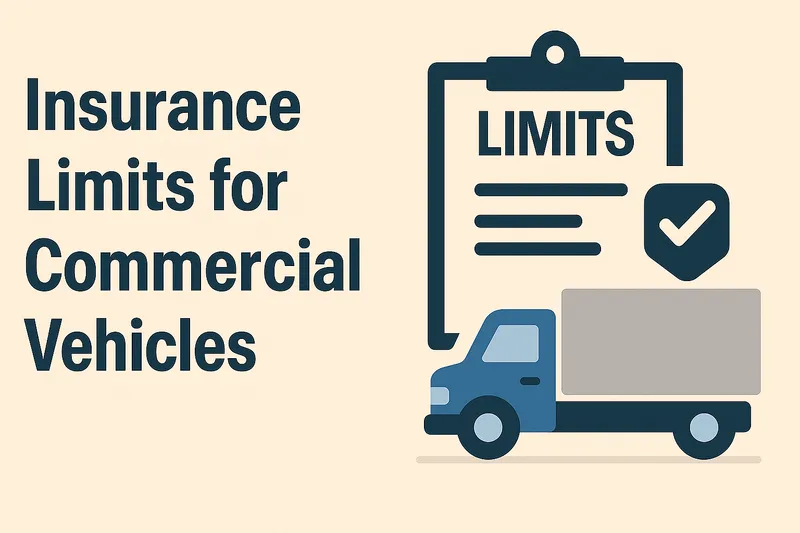Box Truck Accidents in Georgia: Risks, Injuries, and Your Legal Rights

Published: 6/30/2022
Box trucks – also known as cube trucks or straight trucks – are a familiar sight on Georgia’s roads, delivering everything from packages to furniture. These vehicles have a cab up front and a large, box-shaped cargo area attached. Box trucks can weigh up to 33,000 pounds, significantly more than a car. .
What Are Box Trucks and Why Are They Dangerous on Georgia Roads?
Box trucks (sometimes called delivery trucks, cube vans, or straight trucks) are commonly used by companies like USPS, FedEx, UPS, moving services, and local vendors to haul goods across Georgia. Unlike tractor-trailers with a separate trailer, a box truck’s cargo area is fixed to the vehicle’s frame. Box trucks are taller and more top-heavy than normal vehicles, which gives them a high center of gravity. This design makes box trucks prone to rollovers, especially during sharp turns or sudden maneuvers. The cube-like shape also creates large blind spots to the sides and rear, increasing the risk of sideswipe and lane-change collisions if the driver isn’t extremely careful.
Another risk factor is that box trucks can be challenging to drive. In Georgia, drivers generally must have a commercial driver’s license (CDL) to operate a box truck. A CDL indicates special training in handling large vehicles. However, not every box truck driver on the road is highly experienced – for instance, if someone rents a moving van, a CDL might not be required, meaning an ordinary driver with no extra training could be behind the wheel. In busy urban areas like Atlanta, an inexperienced driver trying to maneuver a bulky box truck through traffic or tight streets can be a recipe for disaster. Even skilled drivers must contend with the truck’s long braking distances and substantial weight, which make it harder to stop in time to avoid accidents. All these factors mean that while box trucks are vital for deliveries, they also introduce serious hazards to other motorists on Georgia roads.
Common Causes of Box Truck Accidents
Box truck accidents happen for many of the same reasons as other commercial truck crashes, but certain causes are especially prevalent with these vehicles. Understanding what often leads to box truck wrecks can help drivers stay safe and injury victims identify who was at fault.
-
Driver Fatigue: Long hours or overnight routes can leave drivers exhausted. Fatigue slows reaction times and can even lead to a driver falling asleep at the wheel. In fact, truck driver hours-of-service rules exist to prevent fatigue-related crashes. If a driver pushes beyond legal driving hours or simply doesn’t rest enough, the risk of a serious accident rises.
-
Distracted Driving: Box truck drivers often navigate crowded city streets or unfamiliar delivery routes, which can lead them to glance at GPS devices, phones, or paperwork. Even a momentary distraction – looking at a text, adjusting a navigation system, etc. – can be devastating given the truck’s size. Distracted driving is a frequent factor in truck crashes in Georgia.
-
Speeding and Reckless Driving: Box trucks on tight delivery deadlines may exceed speed limits or drive aggressively to stay on schedule. Speeding is particularly dangerous for heavy vehicles because it lengthens stopping distance and magnifies impact force. A speeding or tailgating box truck can easily cause a catastrophic collision if traffic suddenly slows.
-
Improper Loading or Overloading: Box trucks carry cargo inside their trailer boxes, and if that cargo is unbalanced or unsecured, it can shift in transit. Shifting loads may cause the truck to swerve or tip over. Overloading beyond the truck’s weight capacity also strains brakes and tires. Improperly loaded cargo is a well-known contributor to rollovers and loss-of-control accidents.
-
Poor Maintenance and Equipment Failures: Commercial trucks require regular maintenance to operate safely. Worn brakes, tires, or steering components can fail and trigger an accident. For example, a brake failure on a heavy box truck could mean the driver can’t stop at a red light. If a trucking company or owner neglects maintenance, critical systems might malfunction on the road. Tire blowouts or broken lights on box trucks have also led to serious crashes.
-
Driver Inexperience or Training Gaps: Driving a large box truck is very different from driving a car. An untrained or inexperienced driver may not know how to handle the truck’s wide turns, long stopping distances, or blind spots. Unfortunately, some box truck operators lack proper training, especially if the job did not strictly require a CDL. In urban settings, an inexperienced driver can easily misjudge a clearance or fail to check mirrors, leading to an accident.
-
Blind Spot Errors: Box trucks have significant “no zones” where the driver cannot see adjacent vehicles. If a driver isn’t diligent about checking mirrors and looking over their shoulder, they might sideswipe a car while changing lanes or hit a smaller vehicle when making a wide turn. Many box truck collisions occur because a car was invisible in the truck’s blind spot and the truck driver merged or turned anyway.
Other factors like bad weather or failing to obey traffic signals (e.g. running a red light or stop sign) can also cause box truck wrecks. Often, several of these factors combine – for instance, an overtired driver might also be speeding. Each accident is unique, but a common thread is that most box truck crashes are preventable and stem from negligence by the driver or trucking company.
Who Can Be Held Liable for a Box Truck Accident?
One of the complexities of truck accidents, including box truck crashes, is that multiple parties may be liable. Unlike a simple fender-bender between two cars where one driver is at fault, accidents involving commercial trucks often involve companies and possibly third parties. In Georgia, you have the right to seek compensation from any party whose negligence contributed to the accident. Depending on the circumstances, the following parties could be held liable:
If the driver’s careless or reckless actions caused the crash, they can be held legally responsible. This includes behaviors like speeding, running a red light, driving while distracted or drowsy, following too closely, or other traffic violations. For example, if a box truck driver was texting and failed to brake in time, causing a collision, that driver would be at fault for the resulting damages.
The Trucking Company or Truck Owner
When the driver is operating the box truck as part of their job (which is very often the case for delivery trucks), the driver’s employer can usually be held liable under respondeat superior (employer responsibility for employees’ actions). If the truck was engaged in company business at the time of the wreck, the company that owns or operates the box truck may be vicariously liable for the driver’s negligence. In addition, a trucking company can be directly liable if it contributed to the crash through its own negligence – for instance, by hiring an unqualified driver, failing to train or supervise the driver, or pressuring drivers to violate safety rules. Trucking companies are expected to maintain their fleet and ensure drivers follow regulations; if they don’t and an accident happens, the company can be held accountable.
Maintenance Provider or Mechanic
Proper maintenance is critical for large trucks. If the box truck’s owner or trucking company outsourced maintenance to a third-party garage or mechanic, that entity could be liable if negligent work led to an accident. For example, if a maintenance company failed to replace worn brake pads during an inspection, and then the brakes failed causing a crash, the maintenance provider’s negligence contributed to the accident. In such a case, you might have a claim against that maintenance contractor in addition to the driver/company.
Cargo Loading Company
Sometimes, the party that loaded the cargo into the box truck is separate from the driver or trucking company (common in freight scenarios). If improper loading by a warehouse or loading crew caused the load to shift or the truck to tip, that third party could share liability. Unsecured or unbalanced loads that result in a crash may put the loading company on the hook for the damages.
Truck and Parts Manufacturers
If a defect in the truck or one of its components caused the accident, the manufacturer could be liable under product liability laws. For instance, if the box truck’s steering mechanism was defectively made and suddenly failed, or the truck had a tire that was subject to a recall and it blew out, the designer or manufacturer of that faulty part can be held responsible. These cases often involve technical investigations and sometimes recalls or known defects. Similarly, if a truck dealer sold the vehicle in a defective condition, or a parts supplier provided a bad replacement part, they might also be included in the chain of liability.
Other Motorists or Third Parties
It’s also possible that another driver (not the box truck) contributed to the accident. For example, a car might cut off a box truck, leading the truck driver to swerve and crash. In such scenarios, that third-party driver’s negligence could make them partly liable for the injuries to others. Even entities like a local government could theoretically be partly liable if a road hazard (like improper road design or lack of warnings for a low bridge) played a role – though claims against government entities have special rules and shorter deadlines.
As you can see, figuring out who is at fault in a box truck accident can be complex. Often, an investigation is needed to determine all the contributing factors. A knowledgeable personal injury attorney can help identify all liable parties. This is important because each liable party (for example, the driver and the trucking company) may have different insurance coverage. Trucking companies are required to carry large insurance policies, which means if the company is liable, there is a better chance of fully recovering your losses. The bottom line: if someone’s negligence – whether it’s the truck driver or a company responsible for the truck – caused the accident that injured you, they should be held accountable.
Legal Rights of Box Truck Accident Victims in Georgia
Being injured in a box truck accident can throw your life into chaos. It’s important to know that Georgia law is on your side as an accident victim. Georgia is an at-fault state, not a “no-fault” state, when it comes to vehicle accidents. This means you have the right to pursue a claim against the person or company responsible for the crash, rather than being limited to your own insurance. In Georgia, the at-fault driver (or their employer/company) is legally responsible for paying for the damages and injuries resulting from an accident. You can seek compensation by filing a claim with their insurance or by filing a personal injury lawsuit if necessary.
As a victim, your legal rights include the right to full compensation for your losses caused by the accident. Under Georgia law, you can demand both economic and non-economic damages. Economic damages cover tangible financial costs such as:
Medical expenses: hospital bills, surgeries, medication, rehabilitation, physical therapy, future medical care you’ll need for your injuries.
Lost income: wages lost if you couldn’t work during recovery, and even future earning capacity if your injuries cause a long-term disability that affects your ability to work.
Property damage: the cost to repair or replace your vehicle and any other property damaged in the accident.
Non-economic damages compensate you for more subjective, but very real, losses, including:
Pain and suffering: physical pain, discomfort, and limitations caused by the injuries.
Emotional distress: psychological trauma, anxiety, or PTSD following a serious crash.
Loss of enjoyment of life: if your injuries prevent you from doing hobbies or activities you loved, or otherwise diminish your quality of life.
Scarring or disfigurement: permanent scars or other disfiguring injuries.
Loss of consortium: if the injuries affect your relationship with your spouse (this is usually claimed by the uninjured spouse rather than the injured person).
Georgia law allows truck accident victims to pursue all these types of damages. In some cases of egregious negligence (for example, if a trucking company willfully ignored safety regulations or a driver was extremely reckless), punitive damages might also be available. Punitive damages are meant to punish especially bad conduct and are awarded in rare cases to deter similar behavior.
Another key aspect of Georgia law is comparative negligence.
Georgia follows a modified comparative negligence rule (50% bar). This means you can still recover compensation even if you were partially at fault for the accident, as long as you were less than 50% at fault. However, your compensation would be reduced by your percentage of fault. For example, if you were 20% at fault (perhaps you were slightly speeding) and the truck driver was 80% at fault, you could still recover money, but any award would be reduced by 20%. If you’re found 50% or more at fault, then under Georgia law you would be barred from recovering damages. This rule underscores why it’s important not to admit fault and to let the investigation determine fault. An attorney can help ensure fault is properly assigned.
As a Georgia injury victim, you have the right to hold the negligent party accountable and seek monetary compensation to make you whole.
You also have the right to hire an attorney to represent you, and in fact, truck accident claims can be complicated – an experienced Georgia personal injury attorney can be a crucial advocate to protect your rights, deal with the insurance companies, and fight for the maximum compensation you deserve.
Georgia’s Statute of Limitations for Personal Injury Claims
Georgia law imposes a time limit on how long you have to take legal action after an injury. This is known as the statute of limitations. In Georgia, the statute of limitations for most personal injury cases, including car and truck accidents, is two years from the date of the injury/accident. In other words, you generally have two years from the day of the box truck accident to file a lawsuit against the responsible parties. If you miss this two-year window, you will likely lose your right to bring a claim – the courts will refuse to hear your case, no matter how strong it might have been, and the at-fault party’s insurer will have no incentive to settle once the deadline passes.
There are a few exceptions and nuances to the two-year rule. For example, if the accident resulted in someone’s death, a wrongful death lawsuit by the family must also be filed within two years of the date of death (which is often the same as the accident date, but not always). If a government entity is a defendant, you may have to provide an ante litem notice much sooner. Also, if the injured person is a minor or legally incapacitated, the law might extend (toll) the deadline in some cases. But for most injury victims, it’s critical to act within two years.
Two years might sound like a long time, but in serious accident cases, that period can pass quickly. There’s a lot to do after a truck accident – medical treatment, recovery, dealing with insurance – and building a legal case takes time too. This is one reason why contacting an attorney sooner rather than later is wise. An attorney will ensure that your claim is filed on time and that all procedural deadlines are met.
Don’t wait until the statute of limitations is near to start seeking compensation. If you’ve been injured in a box truck crash, talk to a lawyer well within that two-year period (ideally soon after the accident) so that your rights are preserved. Missing the statute of limitations means forfeiting the compensation you may desperately need for medical bills and other losses.
The Importance of Gathering Evidence
In the aftermath of a box truck accident, two things are especially important for any victim: documenting evidence and getting prompt medical care. These steps protect both your health and your legal claim.
-
Gathering Evidence: Evidence from the accident scene and the period immediately after is often the cornerstone of a successful claim. Photographs, witness statements, and official reports can make all the difference in proving what happened and who is at fault. If you are able (or perhaps a passenger or friend at the scene can help), take photos of the crash scene – vehicle positions, damage to all vehicles, skid marks on the road, debris, and any visible injuries you have. These pictures can be crucial later when dealing with insurance or in court. Also, get the names and contact information of any eyewitnesses. An unbiased witness account of the box truck running a red light, for example, can strongly support your case. If police respond to the scene (as they should in a serious accident), they will create an accident report. Make sure to get the responding officer’s name and badge number and find out how to obtain a copy of the police report for your records. The police report will often contain the officer’s initial findings about fault and any citations issued. It can serve as valuable evidence when negotiating with insurers.
-
Beyond the scene, additional evidence may come into play. Most commercial trucks, including likely newer box trucks, have an electronic data recorder (or “black box”) that logs data about the truck’s speed, braking, and driver inputs. If a box truck’s data can be downloaded, it might show, for example, that the driver was speeding or didn’t hit the brakes before impact – supporting your claim. There are also maintenance records, delivery schedules, and driver logbooks that can be important, especially if maintenance or fatigue is in question. An experienced attorney can send a spoliation letter to the trucking company to preserve such evidence. But initially, your role is to save what evidence you can. Keep copies of everything: the photos, the police report, medical bills, repair estimates, etc. The more evidence you have, the stronger your position when it comes time to prove the trucking company or driver was negligent. Remember, it’s on you (the injured party) to prove your case with evidence – so gathering and preserving proof is essential.
- Seeking Medical Treatment: After a violent accident, adrenaline may be masking pain, and you might not realize the extent of your injuries right away. Never assume you’re “okay” because you feel fine at the moment. Always seek medical attention as soon as possible after a box truck accident – ideally, the same day. Some injuries, like internal bleeding or certain head injuries, may not show obvious symptoms immediately. For instance, whiplash and other soft tissue injuries might become very painful only a day or two after the crash. A medical professional can evaluate you and catch injuries that you might miss. Prompt treatment not only is vital for your health and recovery, but it also creates documentation that the injury was caused by the accident. If you delay seeing a doctor, the insurance company might argue that you weren’t really hurt or that your injuries came from something later. By getting a medical exam and following through with recommended treatment, you are both taking care of your well-being and strengthening your claim. A doctor’s report linking your injuries to the accident can serve as important evidence if you pursue compensation.
What to Do Immediately After a Box Truck Accident
The moments and days following a box truck accident can be chaotic and overwhelming. Yet, this is the critical time to take action that can safeguard your health and legal rights. Here are the key steps you should take immediately after a box truck accident in Georgia:
Call 911 and Ensure Safety: Your first step is to get emergency help on the scene. Check yourself and others for injuries and call 911 right away to report the accident and request an ambulance if needed. Inform the dispatcher of the location and if there are injuries. Getting police and medical responders en route quickly is vital. Box truck crashes often result in serious injuries, so the sooner help arrives, the better. If you’re able, and it’s safe to do so, move your vehicle out of the flow of traffic to prevent further collisions. Turn on hazard lights and set up road flares or triangles if you have them, to warn oncoming cars. Do not leave the scene – remain until authorities arrive.
Exchange Information with the Truck Driver: While waiting for police, if you can, exchange information with the box truck driver (and any other drivers involved). Get the driver’s name, contact number, commercial driver’s license number, the trucking company name, and insurance details. Also note the truck’s license plate and any identifying company logos or unit numbers on the truck. If the driver works for a company, get the company’s contact info as well. It’s also useful to collect the USDOT number usually printed on the truck – this can help identify the carrier. Be polite and calm when speaking with the truck driver. Importantly, do not apologize or admit any fault in your conversation – even saying something like “I’m sorry, I didn’t see you” could be interpreted as admitting fault, when in fact the truck driver might be the one to blame. Simply exchange the necessary info. If the truck driver is hostile or uncooperative, wait for police to arrive and gather info.
Document the Scene: If you are not too injured and it’s safe, start gathering evidence at the accident scene. Take photographs or videos with your phone. Get shots of all vehicles’ damage, the positions of vehicles after the crash, any skid marks or debris on the road, traffic signals or signs if relevant, and the surrounding area (e.g. intersection, weather conditions). Also photograph the truck’s DOT numbers or company markings. Don’t forget to take pictures of your own car’s damage and any visible injuries you have (bruises, cuts). These images can be powerful evidence later, showing the severity and circumstances of the wreck. If there were witnesses (bystanders, other drivers who stopped), ask for their names and contact information as well, and see if they would briefly describe what they saw either to you or to the police. Their testimony could be very important in corroborating that, for example, the box truck ran a red light or was swerving.
Speak to the Police Officer and Stick to the Facts: When law enforcement arrives, they will secure the scene and ask for statements. It’s important to cooperate fully with the police. Tell the responding officer exactly what occurred to the best of your recollection. Provide facts and avoid speculating or admitting fault. Even if you think you might be partially to blame, it’s wiser not to voice that; there may be factors you’re unaware of (like the truck driver being intoxicated or on a phone) that actually caused the crash. Let the officer objectively assess. Make sure the officer records your statement and note down the officer’s name and badge number. The police will compile an accident report – ask how you can obtain a copy. In Georgia, crash reports can often be purchased online through the GDOT website using the incident details. Review the report when it’s available and ensure it’s accurate. If you realize later something was incorrect, you can sometimes have your statement amended or add a supplemental report.
Seek Medical Attention Right Away: If you did not require emergency transport from the scene, it’s still crucial to see a doctor as soon as possible after leaving the scene. Preferably, go to an urgent care or ER the same day for evaluation, even if you feel “okay.” Some serious injuries (like concussions or internal injuries) might not show immediate symptoms. For example, internal bleeding or organ damage can be life-threatening if untreated, and symptoms might appear hours later. Additionally, pain from whiplash or back injuries often develops the next day due to swelling. Tell the medical provider you were in a truck accident and describe any pain or abnormalities you have. They will know what to check for (such as ordering X-rays or CT scans). This medical visit creates a record linking your injuries to the accident, which will be important for any insurance claim. Follow all medical advice given, including any referrals to specialists or recommendations to rest. Keep copies of medical records and discharge papers.
Notify Your Insurance Company: Report the accident to your auto insurance carrier as soon as you can (many policies require prompt notification). Provide the basic facts – when and where it happened, who was involved, the other driver’s info – and let them know you were injured and are seeking medical care. Do not downplay your injuries; even if they seem minor at first, report that you are getting checked out. Your insurer will open a claim and can also be a resource in dealing with the other party’s insurer. Georgia is an at-fault state, so the claim will ultimately be against the truck’s insurance, but your insurer should still be kept in the loop. One caution: You may get a call from the trucking company’s insurance adjuster very soon after the crash. It is usually wise not to give a recorded statement or sign anything from the other insurance company until you’ve sought legal advice. The trucking insurer might try to get you to say things that hurt your case or offer a quick lowball settlement. You can politely decline to discuss details until you’ve consulted an attorney. Simply tell them the basics (that the accident occurred) and that investigation is ongoing.
Consult a Truck Accident Attorney
As soon as you are able, especially before giving detailed statements to any insurance representatives, consider reaching out to a qualified personal injury attorney who has experience with truck accidents. Box truck accidents involve complex issues – from federal trucking regulations to potentially multiple liable parties – that an experienced lawyer can navigate. A lawyer will protect your rights and handle communications with the insurance companies so you don’t inadvertently say something that could be used against you. They can also begin an immediate investigation, perhaps even sending experts to examine the crash scene or the vehicles. Crucially, an attorney can take steps to secure important evidence (like the truck’s black box data or the driver’s logbook) before it “disappears”. Trucking companies and their insurers start building a defense right away – you deserve an advocate doing the same for you. Most Georgia personal injury lawyers (including our firm) offer free consultations and work on a contingency fee, so it costs nothing upfront to get legal help. This step can make a significant difference in the outcome of your claim.
Our experienced personal injury attorneys understand the complexities of truck accident cases and are dedicated to securing the compensation you need to move forward. We will investigate the crash, deal with the insurance companies on your behalf, and fight for your rights every step of the way – allowing you to focus on healing.
Don’t wait to get the legal help and answers you deserve. Contact the Bourne Law Firm today for a free, no-obligation consultation. We will review the details of your box truck accident, explain your legal options in plain language, and help you make informed decisions. If we take your case, you won’t pay a dime unless we win for you – that’s our no-fee promise. Let our team be your advocate and guide through this challenging time.
Related Articles





